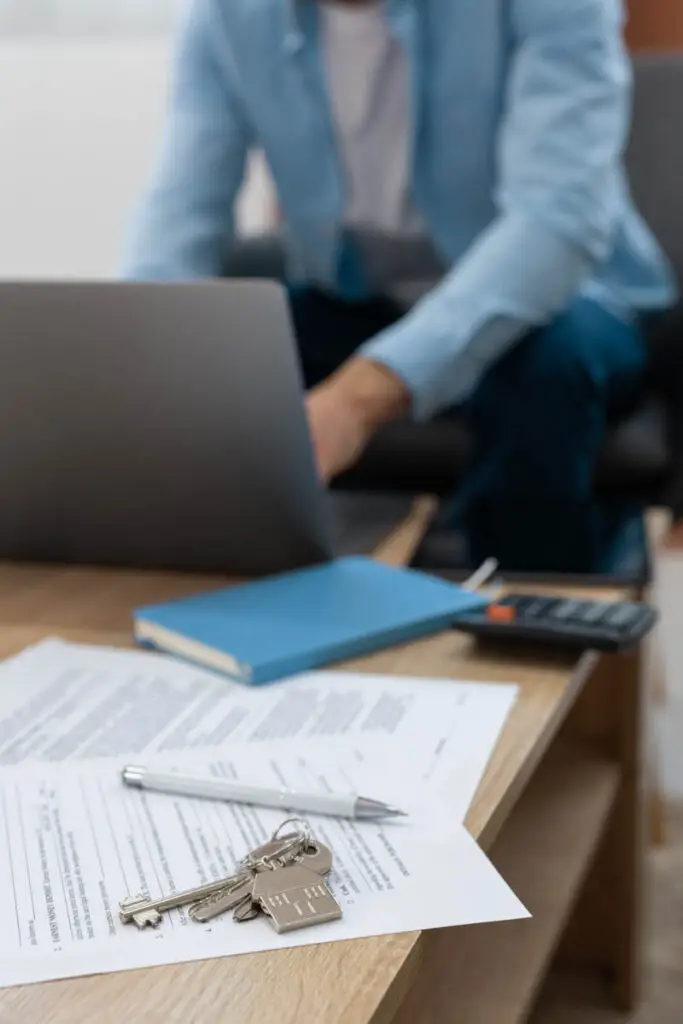Here is the big secret that no one in the real estate industry wants to tell you: you cannot purchase or sell a property without a property lawyer. The role of a lawyer is absolutely crucial, and you cannot do anything without one. Whether you are buying or selling, you must have one.
The lawyer controls the money. The sales contract goes to them. They handle the settlement and deal with the land registry. That said, you must engage a good lawyer. In my lifetime, I have only had good lawyers, so I tend to assume they are all good.
Unless I am wrong and there are some bad ones, I can only say that I have had good experiences. There are plenty to choose from. You have to pick one. I can give you the details of my lawyer if needed, but as I said, feel free to engage your own.
What does a property lawyer do?
This is what I got when I searched Google for ‘what is the role of a property lawyer in a real estate transaction’:
In a real estate transaction, a lawyer acts as a legal expert and advisor, guiding clients through the complex process of buying or selling property. They ensure legal compliance, protect the client’s interests, and manage key aspects like contract preparation, title searches, and closing procedures.
Key roles of a lawyer in a real estate transaction include:
- Document preparation: Lawyers prepare and review legal documents like the Agreement for Sale and Purchase, ensuring they are legally sound and protect the client’s interests.
- Title searches: They conduct thorough title searches to verify ownership, identify potential issues like easements or liens, and ensure a clear title transfer.
- Negotiation and advice: Lawyers negotiate on behalf of their clients, providing expert advice throughout the transaction, including on price, conditions, and potential risks.
- Contract Management: They manage the contract, ensuring compliance with its terms and assisting in resolving any disputes that may arise.
- Closing process: Lawyers facilitate the final steps of the transaction, ensuring all conditions are met, coordinating with other parties involved, and overseeing the transfer of ownership and funds.
- Zoning and land use: In some cases, they may also assist with zoning compliance and land use regulations, particularly for development projects.
Why a lawyer is essential
The role of a lawyer in a real estate transaction is absolutely crucial. You cannot do anything without them. It is a service that no real estate agent provides. It is not included in the commission like marketing is. When you hear ‘we provide free marketing,’ remember that marketing is actually included in the commission. It is not truly free.
A real estate agent will ask you to provide your own lawyer. If you do not know any lawyers, they might offer to suggest one, but you will still have to pay for that. It is not a free service. It is always separate from commission and marketing fees, even when the agent claims to offer ‘free marketing.’
How much does a property lawyer cost?
The good news is that lawyers do not cost that much money compared to what you pay a real estate agent. My last lawyer charged me around $2,000, maybe $3,000. She managed both settlements on the same day: the house I had sold and the one I was buying. It was a pretty complex operation, but she knew exactly how to handle it. Good property lawyers will also issue the LIM report and title search that you need to provide to your prospective buyers.
Every time I asked my real estate agent a question, they referred me to my lawyer. ‘You need to ask your lawyer on this one.’ ‘That is the role of your lawyer, I am just the real estate agent.’ Now you are beginning to see why I thought there was a need for a company like Corban+Dallas.
So, talk to a lawyer before you sell
Before you start on the journey of selling your home, get in touch with a property lawyer and tell them about your plans. They will be a valuable source of information. Then, give Corban+Dallas a call. We will organise everything else, from sale signs and marketing to selling strategy and guiding you through the whole process.

